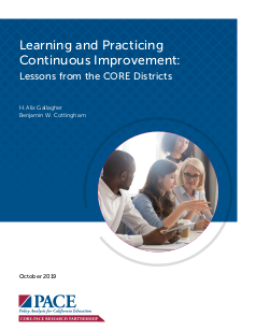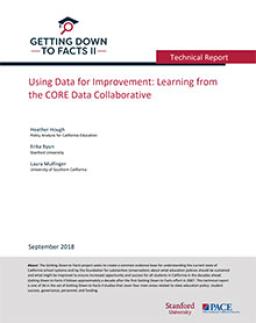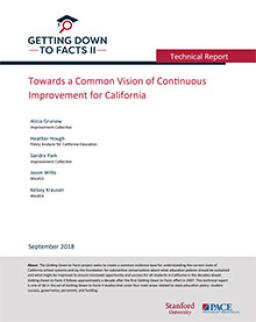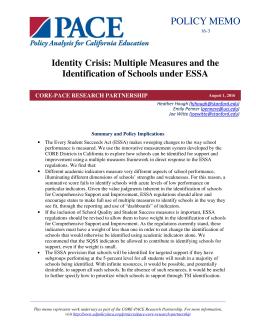Summary
This report examines how California's education sector is embracing continuous improvement over standards-based reform. The study presents six lessons learned from PACE and CORE Districts' collaboration on the topic, including the complexity of embedding continuous improvement processes into school norms and the need for deliberate steps to build a culture conducive to continuous improvement. The report provides implications for broader continuous work in California and beyond, with three case studies providing more detail on exemplary practices in two districts and one school.
Summary
Effective data use is crucial for continuous improvement, but there is confusion about how it differs from data use for other purposes. This report explains what data are most useful for continuous improvement and presents a case study of how the CORE data collaborative uses a multiple-measures approach to support decision-making.
Summary
CA is shifting the responsibility for school improvement to local school districts with County Offices of Education playing a supportive role. The focus is on local leaders driving educational improvement and ensuring quality. Strategic data use is central to the implementation of this policy, with questions remaining about what data is needed, by whom, and for what purpose. This paper provides a framework for how data use for improvement is different from data use for accountability and shares lessons from the CORE Data Collaborative on how to use data for improvement in networked structures.
Summary
This report examines the Every Student Succeeds Act (ESSA) and how schools can be identified for support and improvement using a multiple measures framework. The authors find that different academic indicators measure different aspects of school performance and suggest that states should be allowed to use multiple measures instead of a summative rating. They also find that non-academic indicators are not given enough weight and suggest a clarification in federal policy.



